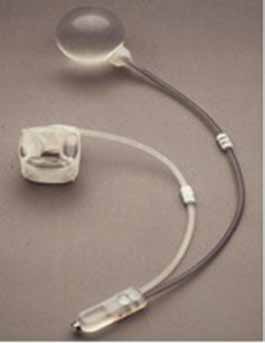Abstract
Introduction: Congenital anorectal malformation is the most common cause of fecal incontinence in children and young adults. Surgical treatment options are limited. One of the treatment methods is the implantation of an artificial bowel sphincter. The goal of this study was to investigate the efficacy of the artificial bowel sphincter in reaching long-term fecal continence in patients with anorectal malformation.
Methods: Young adults with fecal incontinence due to anorectal malformation were included in the study. Those who underwent an artificial bowel sphincter implantation were followed each year for a period of 10 years. Outcome measures included the level of continence and the need for reoperation including explantation.
Results: Out of the 20 patients with congenital anorectal malformation, nine underwent implantation. Three devices were explanted within the first year; two were permanently removed and one was replaced. Thus, after the first year, seven patients (78 %) had a functional artificial bowel sphincter. Four patients (44 %) had a fully functional artificial bowel sphincter at 10 years after implantation. Although the artificial bowel sphincter improved the level of continence in all patients, full continence was not achieved in any of them. In one patient the artificial bowel sphincter was explanted after 10 years upon her request and a colostomy was created.
Conclusion: Artificial bowel sphincter is a potential treatment modality for fecal incontinence in patients with congenital anorectal malformation. The main reason for failure results from inability to accurately assess the extent of the anorectal malformation before device implantation. Changes in the perineal region consequent to previous operations are the main limiting factors for artificial bowel sphincter implantation.

